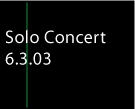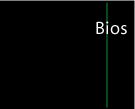 |
 |
 |

The mission of the
Bounding
Board Project is to help developing composers learn about the field
while
developing creative and professional skills. Students will greatly
benefit
from:
A private lesson and a group lesson
A week-long course in the craft of composition
Exposure to a wide array of important repertoire of the past 40 years in daily listening sessions
Seminars and discussions on a variety of topics from inspiration to orchestration and most importantly,
The preparation and performance of student works by Brave New Works.
Through out the Bounding Project week there will be reading sessions and performances of student works.
All participants will also be able to attend all Brave New Works rehearsals during the week.
Instrumentation for Tufts residency composers
The following pieces are being written for BNW for the residency
Trio #1 - fl, vln, harp -Lindsey Schust
Trio #2 - cl, pno, vc -Abigail Al-Doory
Trio #3 - vln, vla, voice -Matthew Snook
Trio #4 - fl, vla, harp -Ryan Vigil
Quartet - fl, cl, harp, piano -Luis Gonzalez
Quintet - string quartet and voice -Russ Gershon
full ensemble piece using all instruments [fl, cl, hp, pno, string quartet, voice] -Don Schechter
BNW will also be rehearsing John McDonald's Inventious Network for performance during the residency

Event Descriptions
Performances of Student Works
The most valuable learning experience for every composer is preparing his or her own works for public performance and recording. The recording then becomes the composer's most effective professional document; in this case students will be able to use their recordings for contests and college and conservatory applications. Each student will have a work played on one of three mini concerts by BNW. These works will be professionally recorded and each student will receive a CD of their concert. Also critical to the learning experience is working with performers. Each student will get to work one on one with BNW Members. One of the faculty will also be present to help coach the rehearsal.
Private and Group Lessons
Each student will get to discuss their recent work one-on-one with a faculty member in a full hour lesson. Looking intimately at the work of your peers can also be remarkably instructive and a great chance to talk about important musical principles. Students will all get to participate in a group lesson working with a few of their fellow students, getting additional feedback on their works and insight into the workings of other pieces.
Compositional Craft I and II
Monday through Friday mornings all students will participate in a class exploring the elements of musical language designed specifically for composers. Students will be divided according to theory experience into 2 groups. Students will be given short assignments each night to reinforce concepts. These assignments will evolve cumulatively and at the end of the week members of BNW will visit class to play through the assignments for the students.
Listening Sessions
At the end of each afternoon we gather as a group for listening sessions. We will cover a wide variety of music and talk informally about our impressions.
5 Seminars
Monday through Thursday after dinner there will be talks given on various topics of interest to young composers. Seminar offerings include: Notation, The Creative Process, Orchestration, and presentations on important contemporary composers. John McDonald will also give a seminar on his recent music.
Feedback from Brave New Works members after residency
BRAVE NEW WORKS - FEEDBACK SESSION AT Tufts University, 6/9/03
1. Open rehearsals
2. Scheduling
3. Timeframe
4. Seminars
5. Manuscript/computerized score
1. We should make it clearer to the composers that the rehearsals are
open. Space might have been an issue this time around. Also, composers
should be able to learn about the pieces being rehearsed beforehand; Extra
scores need to be available; Somebody could introduce the piece with a few
words before the rehearsal.
2. Scheduling was complicated because we didnUt have the scores before and
so it was impossible to know how much rehearsal each piece would require.
However, in the future, more careful scheduling should be done in advance.
The schdule itself could be more flexible if we left free block or TBA
blocks in the schedule so that whatever was needed could be rehearsed
there. This issue will also be different if the composers are in
residency.
3. Time frame: Composers should have at least 8-10 weeks to compose the
pieces: For specific time frame we could look at Scotia Festival or
Norfolk. We could have a call for scores, where composers send already
existing scores, and then commission the composers to write for the
specified ensemble. We could also have Rreading sessionsS so that the
composers would write while in residence and work on the pieces with us.
It should be made known to the composers that the performers are available
to look at other pieces while in residence, such as solo pieces or parts
for other pieces. The residency would be better organized in chunks, so
that we wouldnUt be rehearsing for four programs simultaneously: 1st
three-day session would be rehearsing BNW stuff, open rehearsals etc., 2nd
three-day session would be rehearsing composers pieces that are already
written, and 3rd session would be a work-shop with readings of pieces that
composers are currently working on.
4. Seminars: The request was made by the composers that rather than
focusing only on instrumental techniques, we would talk about repertoire
as well, and about pieces that we like, what we like about them etc.
5. There needs to be a requirement that scores have to be legible: some
BNW members prefer computerized score, some like manuscript, but
regardless, it needs to be clear.
.
A private lesson and a group lesson
A week-long course in the craft of composition
Exposure to a wide array of important repertoire of the past 40 years in daily listening sessions
Seminars and discussions on a variety of topics from inspiration to orchestration and most importantly,
The preparation and performance of student works by Brave New Works.
Through out the Bounding Project week there will be reading sessions and performances of student works.
All participants will also be able to attend all Brave New Works rehearsals during the week.
Instrumentation for Tufts residency composers
The following pieces are being written for BNW for the residency
Trio #1 - fl, vln, harp -Lindsey Schust
Trio #2 - cl, pno, vc -Abigail Al-Doory
Trio #3 - vln, vla, voice -Matthew Snook
Trio #4 - fl, vla, harp -Ryan Vigil
Quartet - fl, cl, harp, piano -Luis Gonzalez
Quintet - string quartet and voice -Russ Gershon
full ensemble piece using all instruments [fl, cl, hp, pno, string quartet, voice] -Don Schechter
BNW will also be rehearsing John McDonald's Inventious Network for performance during the residency

Event Descriptions
Performances of Student Works
The most valuable learning experience for every composer is preparing his or her own works for public performance and recording. The recording then becomes the composer's most effective professional document; in this case students will be able to use their recordings for contests and college and conservatory applications. Each student will have a work played on one of three mini concerts by BNW. These works will be professionally recorded and each student will receive a CD of their concert. Also critical to the learning experience is working with performers. Each student will get to work one on one with BNW Members. One of the faculty will also be present to help coach the rehearsal.
Private and Group Lessons
Each student will get to discuss their recent work one-on-one with a faculty member in a full hour lesson. Looking intimately at the work of your peers can also be remarkably instructive and a great chance to talk about important musical principles. Students will all get to participate in a group lesson working with a few of their fellow students, getting additional feedback on their works and insight into the workings of other pieces.
Compositional Craft I and II
Monday through Friday mornings all students will participate in a class exploring the elements of musical language designed specifically for composers. Students will be divided according to theory experience into 2 groups. Students will be given short assignments each night to reinforce concepts. These assignments will evolve cumulatively and at the end of the week members of BNW will visit class to play through the assignments for the students.
Listening Sessions
At the end of each afternoon we gather as a group for listening sessions. We will cover a wide variety of music and talk informally about our impressions.
5 Seminars
Monday through Thursday after dinner there will be talks given on various topics of interest to young composers. Seminar offerings include: Notation, The Creative Process, Orchestration, and presentations on important contemporary composers. John McDonald will also give a seminar on his recent music.
Feedback from Brave New Works members after residency
BRAVE NEW WORKS - FEEDBACK SESSION AT Tufts University, 6/9/03
1. Open rehearsals
2. Scheduling
3. Timeframe
4. Seminars
5. Manuscript/computerized score
1. We should make it clearer to the composers that the rehearsals are
open. Space might have been an issue this time around. Also, composers
should be able to learn about the pieces being rehearsed beforehand; Extra
scores need to be available; Somebody could introduce the piece with a few
words before the rehearsal.
2. Scheduling was complicated because we didnUt have the scores before and
so it was impossible to know how much rehearsal each piece would require.
However, in the future, more careful scheduling should be done in advance.
The schdule itself could be more flexible if we left free block or TBA
blocks in the schedule so that whatever was needed could be rehearsed
there. This issue will also be different if the composers are in
residency.
3. Time frame: Composers should have at least 8-10 weeks to compose the
pieces: For specific time frame we could look at Scotia Festival or
Norfolk. We could have a call for scores, where composers send already
existing scores, and then commission the composers to write for the
specified ensemble. We could also have Rreading sessionsS so that the
composers would write while in residence and work on the pieces with us.
It should be made known to the composers that the performers are available
to look at other pieces while in residence, such as solo pieces or parts
for other pieces. The residency would be better organized in chunks, so
that we wouldnUt be rehearsing for four programs simultaneously: 1st
three-day session would be rehearsing BNW stuff, open rehearsals etc., 2nd
three-day session would be rehearsing composers pieces that are already
written, and 3rd session would be a work-shop with readings of pieces that
composers are currently working on.
4. Seminars: The request was made by the composers that rather than
focusing only on instrumental techniques, we would talk about repertoire
as well, and about pieces that we like, what we like about them etc.
5. There needs to be a requirement that scores have to be legible: some
BNW members prefer computerized score, some like manuscript, but
regardless, it needs to be clear.
.
 |
 |
 |